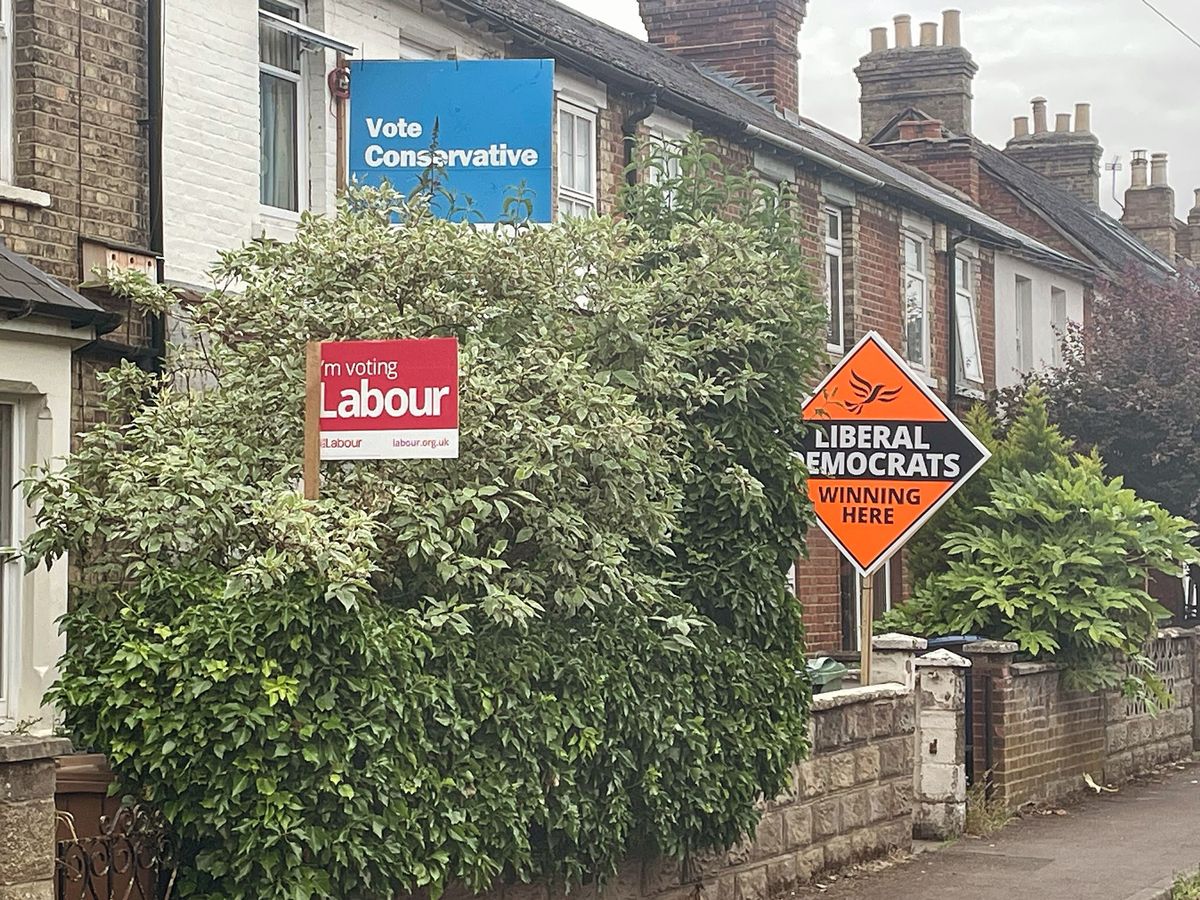Clean sweep: how Oxfordshire went from five to zero Conservative MPs

In the end it wasn't even close.
A Conservative majority of 14,000 in Henley became a Liberal Democrat majority of 6,270. Wantage went the same way, from 12,650 to 6,230. Witney and Bicester & Woodstock were similar. Banbury fell to Labour. These are areas that have been Conservative since the early 1900s at least. Not a single recount was needed.
Oxfordshire’s election results:
— Oxford Clarion (@OxfordClarion) July 5, 2024
🌹Banbury: Lab GAIN
🔶Bicester & Woodstock: LibDem GAIN
🔶Didcot & Wantage: LibDem GAIN
🔶Henley & Thame: LibDem GAIN
🌹Oxford East: Lab HOLD
🔶Oxford West & Abingdon: LibDem HOLD
🔶Witney: LibDem GAIN
LibDem 5 (+4), Lab 2 (+1), Con 0 (-5).
How did it happen? Here's our snap verdict on the winning campaigns.
- Old-fashioned campaigning works. This was a triumph for pavement politics. None of the winning candidates had a particularly sophisticated social media operation. The election was won by door-knocking and leafleting.
- People value local candidates. Every new Oxfordshire MP is a serving local councillor. Candidates without an Oxfordshire background did poorly, whatever their party.
- Oxfordshire’s voters get tactical voting. In Witney, Didcot, and Bicester, the third-placed party (Labour in each case) attempted to muddy the waters with selective use of polling and creatively worded leaflets. Voters weren’t fooled. In an election where Labour dominated the national narrative, anti-Conservative residents coalesced behind a single candidate in each seat, whether that be LibDem or Labour. The fear that a split opposition could let the Conservatives through didn't materialise.
- So do Oxfordshire's activists. Oxford Greens decamped en masse to Bristol Central. They won it. (And still coasted to a comfortable second in Oxford East.)
- Reform UK didn't help the Conservatives, but nor did they swing it. Nigel Farage's party scored between 4,164 (Oxford West) and 6,284 (Banbury). Not all of those votes would have gone to the Conservatives: some would be Labour, others would have stayed at home. In no seat is it plausible that the Conservatives would have been saved if Reform didn’t stand.
- The “war on motorists” didn't resonate. Conservative leaflets majored on “anti-motorist” local LibDem policies such as 20mph limits and Low Traffic Neighbourhoods. The anti-LTN Independent Oxford Alliance ran on little else. It didn't work. Even in Oxford East, the IOA trailed behind LibDem and Green parties who had sent their activists elsewhere.
- But the “war on sewage” did. A local issue that chimed with feeling about the nation, we're told it came up on the doorsteps repeatedly. Thames Water arguably had a bigger influence on the Oxfordshire results than Reform UK did.
The new MPs have a lot to do: setting up constituency offices, finding their way round Parliament, forging relationships with their new colleagues. Give a thought to the defeated incumbents and their staff, faced with an unexpected career change – and with plenty of fellow ex-MPs competing for the same consultant and non-executive jobs.
Have you had enough of elections? So have we. But it’s not over yet. Sean Woodcock, Freddie van Mierlo, Calum Miller and Charlie Maynard are all either district or county councillors. That's four council by-elections in the next few months. Those stakeboards might not be packed away quite yet.
